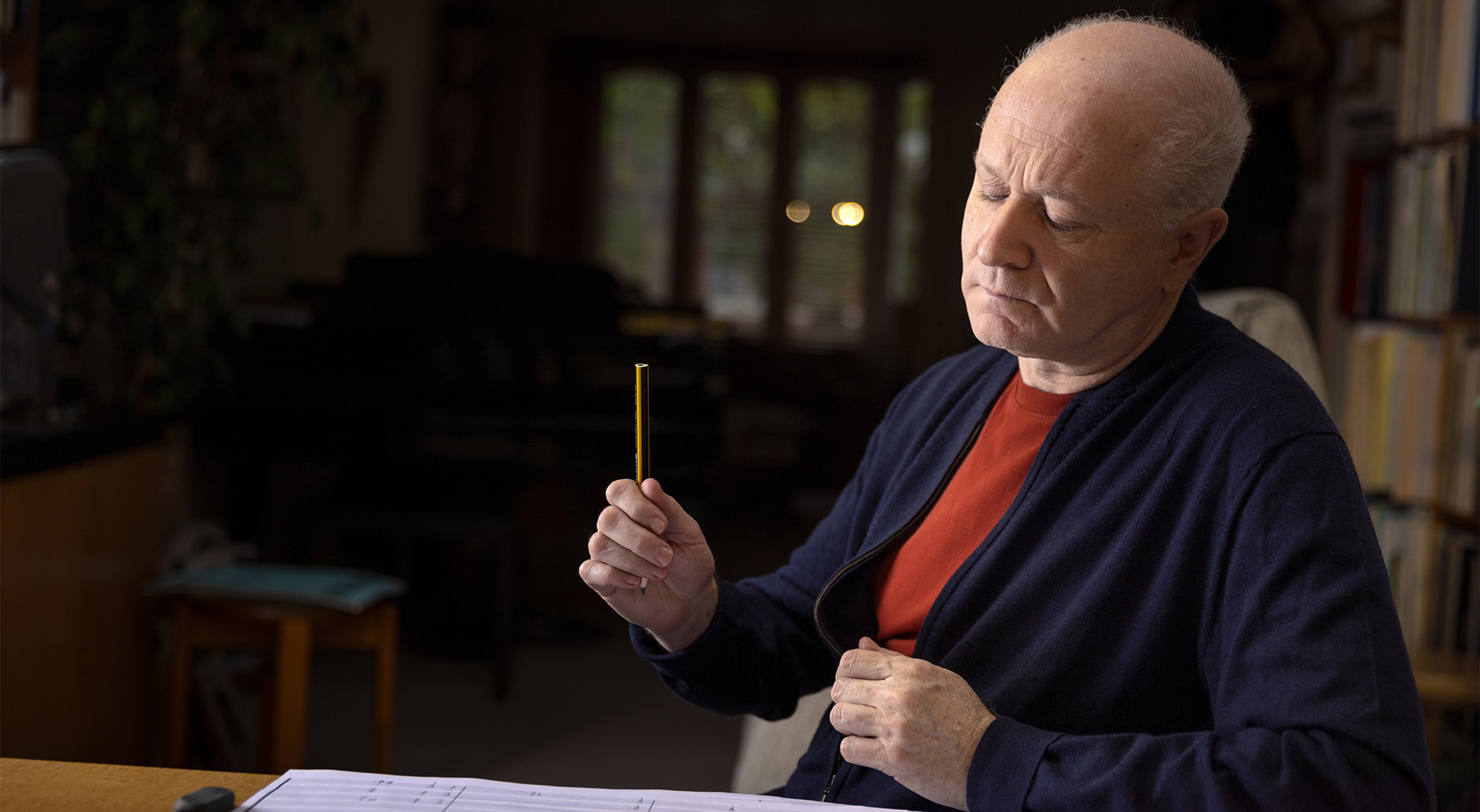George Benjamin
Lessons in Love and Violence
Sir George Benjamin, Lessons in Love and Violence (2017-2018)
Original text by Martin Crimp
Orchestre de Paris
George Benjamin, conducting
Stéphane Degout, baritone
Georgia Jarman, soprano
Gyula Orendt, baritone
Toby Spence, tenor
James Way, tenor
Dan Ayling, staging
Produced by Philharmonie de Paris
The Philharmonie de Paris and the Festival d'Automne à Paris present this concert in coproduction.
1594 : Christophe Marlowe published Edward II, a major play in Elizabethan theatre. In an opera inspired by its story, George Benjamin now collaborates, four centuries later, a third time with playwright Martin Crimp, after the Into the Little Hill and Written on Skin operas. In this piece, love of any kind is perceived as a transgression of the obligations dictated by the State.
Lessons in Love and Violence picks up on the historical chronicle and reveals its modernity in a piece of drama which is intimate and harsh, the unrelenting nature of which is underlined by the tension between verb and sound. In a country in the depths of misery, we hear of the liaison of Edward II, King of England, with the Gascon knight Pierre Gaveston. This relationship alienates him from his wife Isabel and his children, to the point of forcing him to abdicate. Banishment, manipulation, betrayal, arrest, murder are all present in this piece. “There is an art to killing - but no joy” sings Mortimer, the King's cold and ambitious advisor. The stage mirrors the violence of the world. Edward II, who followed only his heart's content, dies of the “poison” that love is purported to be. This passion, regardless of the other partner's sex, disrupts the senses and reason, and results in the decision taken by the sovereign, indifferent to the roaring revolt, being a misguided one if. These are the "lessons" evoked in the title, learnt, to their great expense, by the main protagonists over the course of the seven scenes. With a consummate art of detail, form, its deployment and instrumental color, the music of George Benjamin contributes masterfully to the drama, and is theatre in itself.
See also
